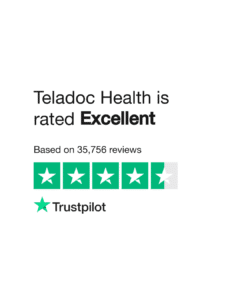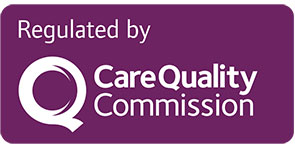The teenage years can be a time of rapid change, self-discovery, and increasing independence- but they can also bring emotional challenges. In today’s world, where much of life is experienced online, the mental wellbeing of young people is shaped not only by real-world relationships but also by their digital environments.
This article explores common challenges teens may face in the digital age, how they can impact mental health, and how parents and caregivers can support young people through them.
Understanding the Impact of Social Media on Teens
 Social media has become a central part of teenage life. While it can be a place of connection and creativity, it can also expose young people to unrealistic standards, pressure to conform, and harmful content. Constant comparison to others, whether related to appearance, lifestyle, or achievements, can contribute to anxiety, low self-esteem, and a distorted sense of self-worth.
Social media has become a central part of teenage life. While it can be a place of connection and creativity, it can also expose young people to unrealistic standards, pressure to conform, and harmful content. Constant comparison to others, whether related to appearance, lifestyle, or achievements, can contribute to anxiety, low self-esteem, and a distorted sense of self-worth.
Online platforms may also present risks, such as exposure to harmful ideologies or extreme content, sometimes subtly disguised within online communities. Without proper guidance, it can be difficult for teens to distinguish supportive spaces from those damaging to their wellbeing.
Recognising the Signs of Online Harmful Content
Young people may not always share what they are experiencing online, but some signs could indicate distress or exposure to unhealthy influences. These may include:
- Sudden changes in mood or behaviour
- Withdrawal from friends or family
- Increased secrecy around online activity
- Using unfamiliar or concerning language
Recognising these signs early can help open a conversation and prompt appropriate support.
Challenging Harmful Stereotypes
Rigid social expectations around identity, appearance, and behaviour can impact all teenagers. These pressures may encourage young people to suppress their emotions or feel that they need to present themselves in certain ways online or offline. Challenging these messages—by encouraging self-expression, emotional openness, and individuality—can support healthier development and well-being.
 Strategies for Parents to Support Teen Mental Health
Strategies for Parents to Support Teen Mental Health
Supporting teenagers with mental health can feel challenging, especially in a digital world where online influences are constantly evolving. While open conversations and awareness are key, there are also practical steps parents and caregivers can take to help their teens navigate these challenges in a healthier way. Here are some helpful strategies to consider:
- Open Communication: Create a safe and non-judgemental space for your teenager to discuss their online experiences and feelings. Regular conversations can help you stay informed about their digital interactions and provide opportunities to address any concerns.
- Digital Literacy Education: Educate your child about the potential risks of online platforms and the importance of critical thinking when engaging with digital content. Encourage them to question and analyse the information they encounter.
- Encourage Offline Activities: Promote involvement in hobbies and activities that do not involve screens. Physical activities, arts, and face-to-face social interactions can help balance their online and offline lives.
- Set Boundaries for Screen Time: Establish clear guidelines for when and how long your teenager can use electronic devices. Implementing tech-free zones or times, such as during family meals or before bedtime, can help reduce excessive screen time.
- Monitor Behavioural Changes: Be attentive to shifts in mood, behaviour, or social patterns. If you notice signs of distress or withdrawal, consider seeking the assistance of a mental health professional who can provide appropriate support.
Seeking Support and Moving Forward
Navigating the challenges of adolescence- online and offline- can sometimes feel overwhelming, but you don’t have to do it alone. By fostering open conversations, setting healthy boundaries, and staying informed about the digital world, you can create a supportive environment where your teenager feels safe to express themselves. If concerns arise about your teens mental health, reaching out to a professional can provide valuable guidance and reassurance.
Services like Teladoc Health UK offer access to experienced Counsellors and Psychologists who have expertise in adolescent mental health, providing guidance through consultations for parents and minors where appropriate. This can help families navigate concerns and find ways to support their child’s wellbeing. If additional support is needed, professionals can also signpost to appropriate services.
Remember, small steps can make a big difference- your presence, understanding, and willingness to listen are some of the most powerful tools in helping your teen thrive.
Parent & Child Mental Health Consultations

 Social media has become a central part of teenage life. While it can be a place of connection and creativity, it can also expose young people to unrealistic standards, pressure to conform, and harmful content. Constant comparison to others, whether related to appearance, lifestyle, or achievements, can contribute to anxiety, low self-esteem, and a distorted sense of self-worth.
Social media has become a central part of teenage life. While it can be a place of connection and creativity, it can also expose young people to unrealistic standards, pressure to conform, and harmful content. Constant comparison to others, whether related to appearance, lifestyle, or achievements, can contribute to anxiety, low self-esteem, and a distorted sense of self-worth. Strategies for Parents to Support Teen Mental Health
Strategies for Parents to Support Teen Mental Health







